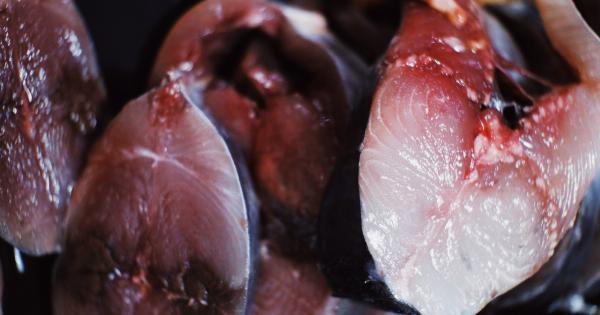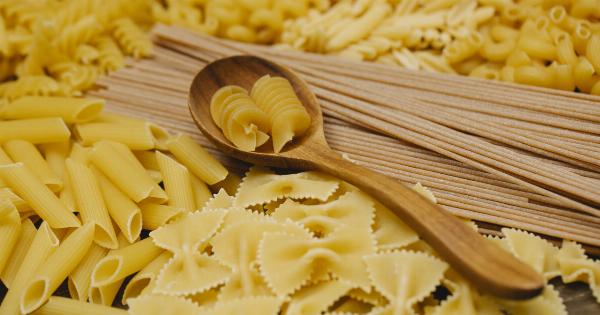Did you know that the foods you eat can have a direct impact on your overall health and well-being? According to the blood type diet theory, your blood type determines how your body reacts to certain foods.
This means that eating foods that are compatible with your blood type can help improve digestion, boost energy levels, and even prevent diseases. In this ultimate guide, we will explore the different blood types and the specific foods that are beneficial for each type.
Blood Type O
Individuals with blood type O are considered to be the “hunters” who thrived on a high-protein diet in ancient times. If you have blood type O, it is recommended to consume lean meats, fish, fruits, and vegetables.
You should avoid grains, dairy, and legumes as they can lead to digestive issues and weight gain. Focus on foods such as lean beef, lamb, turkey, and organ meats for optimal health.
Blood Type A
If you have blood type A, you are considered to be the “cultivators” who benefited from a vegetarian diet in ancient times. Foods that are recommended for blood type A individuals include vegetables, tofu, legumes, whole grains, and fruits.
This blood type should avoid red meats, dairy products, and wheat, as they can lead to various health issues. Instead, opt for plant-based proteins, such as almonds and tempeh, to maintain a healthy lifestyle.
Blood Type B
Those with blood type B are considered to be the “nomads” who have a more flexible digestive system. The blood type B diet focuses on a balance between meats, dairy products, grains, fruits, and vegetables.
It is important for individuals with blood type B to avoid foods such as chicken, corn, and peanuts, as they can cause weight gain and digestive issues. Incorporate foods like eggs, lamb, green vegetables, and low-fat dairy into your diet for optimal health.
Blood Type AB
Individuals with blood type AB are considered to be the “enigmas” who have a mix of traits from types A and B. The blood type AB diet combines aspects of both vegetarian and meat-based diets.
Foods recommended for blood type AB individuals include tofu, seafood, dairy, grains, and a variety of fruits and vegetables. This blood type should avoid caffeine, alcohol, and smoked or cured meats, as they can lead to digestive issues and contribute to heart diseases. Opt for foods such as tofu, seafood, green vegetables, and dairy alternatives for better health.
Beneficial Foods for All Blood Types
While each blood type has its own specific dietary recommendations, there are certain foods that are beneficial for everyone, regardless of blood type. These include:.
1. Leafy Greens
Leafy greens such as kale, spinach, and Swiss chard are packed with essential vitamins and minerals. They are low in calories and high in dietary fiber, making them an excellent choice for weight management and overall health.
2. Berries
Berries such as blueberries, strawberries, and raspberries are rich in antioxidants, which help protect the body against free radicals. They are also high in fiber and have a low glycemic index, making them a healthy choice for blood sugar control.
3. Olive Oil
Olive oil is a heart-healthy fat that contains monounsaturated fats and antioxidants. It helps reduce inflammation, lower cholesterol levels, and promote brain health. Use it as a dressing or for light sautéing for maximum benefits.
4. Lean Protein
Lean protein sources like chicken breast, turkey, fish, and tofu are essential for muscle growth, repair, and overall health. They provide essential amino acids and are lower in saturated fat compared to fatty cuts of meat.
5. Nuts and Seeds
Nuts and seeds such as almonds, walnuts, chia seeds, and flaxseeds are rich in healthy fats, fiber, and essential vitamins and minerals. They promote heart health, aid in digestion, and provide a feeling of satiety.
6. Whole Grains
Whole grains like quinoa, brown rice, oats, and barley are a great source of complex carbohydrates, dietary fiber, and essential nutrients. They provide sustained energy, aid in weight management, and support overall gut health.
7. Fermented Foods
Fermented foods such as yogurt, kefir, sauerkraut, and kimchi contain beneficial probiotics that support a healthy gut microbiome. They help improve digestion, boost the immune system, and promote overall well-being.
8. Green Tea
Green tea is rich in antioxidants called catechins, which have been linked to various health benefits. It helps boost metabolism, aids in weight management, improves brain function, and reduces the risk of chronic diseases.
9. Colorful Vegetables
Colorful vegetables such as bell peppers, carrots, tomatoes, and broccoli are not only visually appealing but also packed with vitamins, minerals, and antioxidants. They support a strong immune system, aid in digestion, and promote optimal health.
10. Water
While not technically a food, water is essential for overall health. It helps maintain proper hydration, aids in digestion, flushes out toxins, and supports various bodily functions. Aim for at least 8 glasses of water per day for optimal hydration.




























